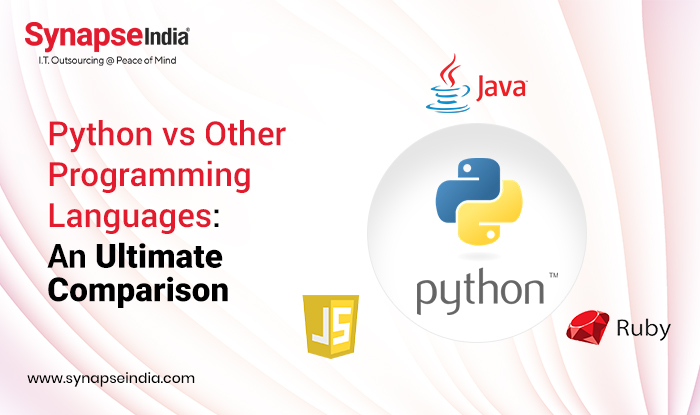 02 Jan 2024
02 Jan 2024
Python is a high-level, versatile programming language known for its simplicity and readability. It was created by Guido van Rossum and emphasizes code readability and ease of use. Python can support multiple programming languages in various domains including web development, data science, artificial intelligence, and automation. It has an extensive library and great community which has made Python a supreme choice. Python has an interpreted nature that facilitates rapid development and prototyping which makes it an ideal choice for beginners and experienced developers. Due to its versatility, it has continued to be a cornerstone in the landscape of programming.

Python due to its extensive versatility provides many advanced features that make it a capable language for various website development projects. Here are its extensive features:
Python emphasizes clean and readable code, promoting a straightforward and easy-to-understand syntax.
Supports multiple programming paradigms, including procedural, object-oriented, and functional programming.
Python's rich standard library provides pre-built modules and packages, enhancing functionality without additional downloads.
Python is an interpreted language, allowing for quick development and testing without the need for compilation.
Dynamically typed, Python allows developers to create and modify variables without specifying data types explicitly.
Here is a detailed comparison that helps you to know why Python is considered above from any other programming language:

| Features | Python | Java | Ruby | JavaScript |
|---|---|---|---|---|
| Ease of Use | Yes | Moderate | Yes | Yes |
| Readability | Highly readable | Moderate | Moderate | Moderate |
| Syntax | Simple and clean | Verbosity | Concise | Flexible and dynamic |
| Versatility | Wide range of applications: web development, data analysis, machine learning, automation, and more | General-purpose | Web development | Web development |
| Community Support | Strong | Strong | Strong | Strong |
| Extensive Libraries | Yes | Yes | Yes | Yes |
| Scalability | Scalable | Scalable | Moderate | Scalable |
| Ecosystem | Vast and growing | Mature | Mature | Vast and growing |
| Backend Development | Yes | Yes | Yes | Yes |
| Frontend Development | Yes | No | Yes | Yes |
| Data Science | Widely used | Growing in popularity | Moderate | Growing in popularity |
| Automation | Strong | Moderate | Moderate | Moderate |
Choosing the right Python development services is crucial for a successful project. Here's a guide on how to make the right choice:
Assess the service provider's expertise by examining their skills, experience, and past projects in Python development.
Look at their portfolio to see if they have worked on projects similar to yours and delivered successful outcomes.
Ensure the development services are well-versed in modern Python frameworks, tools, and technologies.
Read client reviews and testimonials to gauge the satisfaction level of previous clients and the provider's reliability.
Choose a service provider that can scale with your project's growth and evolving requirements.
A high-level web framework that promotes rapid development and clean, pragmatic design.
Comes with built-in features like an ORM, an admin panel, and authentication.
Lightweight and modular, Flask is ideal for small to medium-sized applications.
Offers flexibility with minimal dependencies and allows developers to choose their components.
Designed for building APIs quickly with automatic documentation.
Boasts high performance, based on standard Python type hints.
A flexible framework suitable for both small applications and large-scale enterprise projects.
Offers a choice of templates, database integrations, and URL routing.
Primarily designed for handling asynchronous processes.
Suited for real-time web applications, chat applications, and long-polling.

